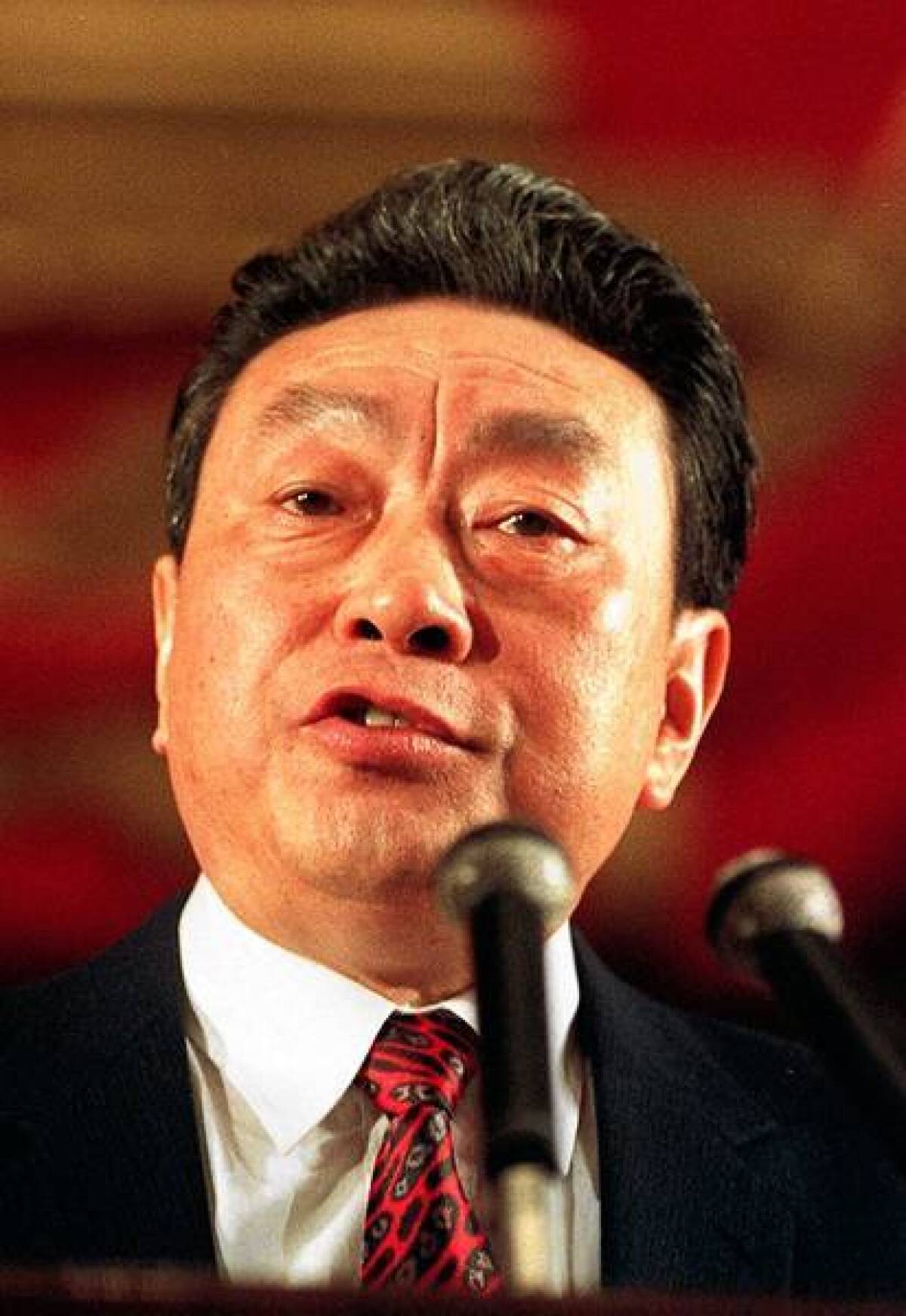Chen Xitong dies at 82; former mayor of Beijing

Chen Xitong, a former mayor of Beijing who backed the military crackdown on the Tiananmen Square democratic movement during his term but later expressed regret, died at 82 on Sunday, two days before the 24th anniversary of the bloody quelling of the student-led movement.
The Hong Kong China News Agency, an offshoot of the official China News Service, said Chen died in Beijing. The cause was cancer, said Chengdu-based writer He Sanwei, a family friend.
At the height of his career, Chen was one of China’s most powerful men, but an anti-corruption campaign brought about his spectacular downfall.
Initial reports of his death began to circulate Tuesday, the anniversary of the Tiananmen crackdown. Chen’s death so close to the politically sensitive date posed additional difficulties for the government, which has tried to erase mention of the 1989 events.
Chen was long portrayed as having supported the military assault that crushed the protests, killing hundreds, possibly thousands, of people. At the time, he alleged that “plotters of the turmoil attempted to use the chaos as an opportunity to seize power.”
Late in life, and fighting to salvage his reputation, Chen apparently had a change of heart. He called the crackdown “a tragedy that could have been avoided and should have been avoided.... Nobody should have died if it had been handled properly.”
A native of Sichuan province, he was born in 1930 and graduated from prestigious Peking University. He joined the Chinese Communist Party in 1949, months after the People’s Republic of China was founded.
He rose through the ranks in Beijing and in 1983 was appointed the city’s mayor, a position he held until 1993, shortly after he was promoted to Beijing Communist Party boss and given a seat on the party’s elite Politburo, the apex of Chinese political power. A massive graft scandal that may have cost the city more than $2 billion resulted in his 1995 downfall.
Chen was deposed and given a 16-year prison term, effectively silencing him. In sentencing him in 1998, a Beijing court ruled that Chen pursued a “corrupt and decadent life” that featured lavish partying at two villas built with public funds. He allegedly accepted gifts while in office and showered his mistress with presents and homes, including one in Hong Kong, where some say he fled after being ousted.
By 2006, Chen had reportedly been released on medical parole for cancer treatment. He looked set to fade into the annals of Chinese political history but for the publication last year of a book in Hong Kong based on interviews he gave a retired scholar, Yao Jianfu.
Yao said Chen denied being directly responsible for the Tiananmen crackdown and said it should never have happened. He also urged a new investigation of the crackdown to determine how many people were killed and other facts.
More to Read
Start your day right
Sign up for Essential California for the L.A. Times biggest news, features and recommendations in your inbox six days a week.
You may occasionally receive promotional content from the Los Angeles Times.






